Whether you’re a die-hard gun enthusiast or own a single gun for hunting or self-defense, we’ve all been there. You’re cleaning out your ammo and gun storage area, and you happen to spot a box of old ammunition on the back of the shelf. You have no idea how long it’s been there or when you bought them, and you can’t help but wonder if they’re still viable.
If you’ve ever been in this situation or you’re in it now, you’ve come to the right place.
How Long Does Ammo Last?
Most ammo manufacturers give a rough estimate of 10 years life span. While bullets don’t have an expiration date in the typical sense, they can definitely go bad over time. However, if you store ammo properly and keep it in a cool, dry place, most bullets and shells can last almost indefinitely.
The question of whether or not bullets expire isn’t as easy as a simple yes or no. Technically, any kind of bullet that utilizes gunpowder doesn’t have an exact expiration date as the gunpowder doesn’t rot like food. However, over a long enough period of time and in the wrong environments, bullets lose their potency.
If you shoot a bullet or shell that has lost its potency, one of two things can happen. The first and less dangerous option is that your gun will simply misfire. The second option is that your gun will fire, but there isn’t enough momentum that’s created to get your bullet or shell out of the gun. If you fire a second shot with the barrel still blocked by a bullet, you will most likely damage your gun and possibly even hurt yourself.
When I was in high school, my grandfather took me shooting with my great aunt’s .22 revolver she keeps by her bed for protection. Only about 25% of the bullets fired. It turns out, her revolver hadn’t been shot since about the time I was born. Sitting in a musty house in a very humid environment had ruined the gunpowder. Luckily, we only experienced misfires and it happened when practice shooting and not in a real self defense scenario. That is the importance of ensuring your ammo is in working condition.
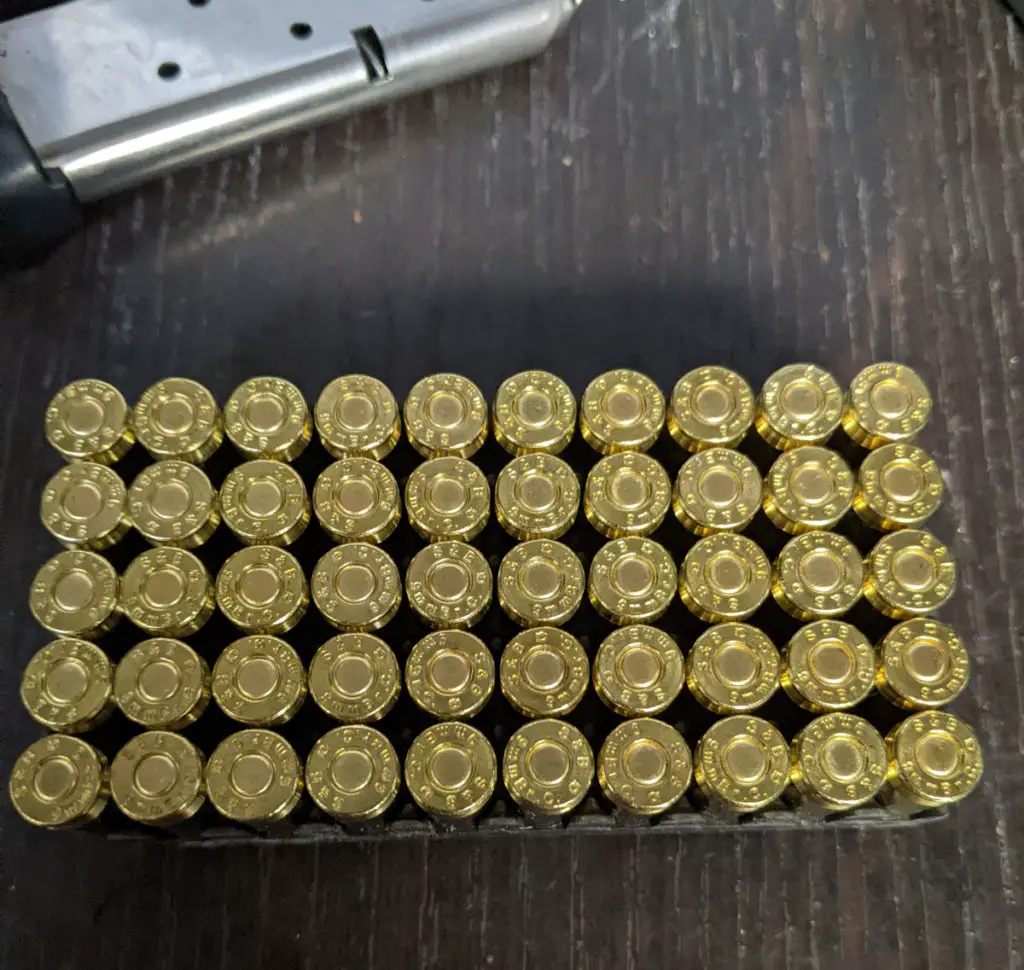
- Federal Premium: According to Federal Premiums website, their ammunition has a shelf life of ten years. They don’t guarantee the efficacy of their cartridges or ammunition past this point.
- Remington: According to Remington’s website, they also offer a shelf life of ten years for their ammunition.
Potential Risks of Using Old Ammunition
We looked at a few of the possible outcomes of firing bad ammunition. However, let’s delve a little deeper so that we better understand the risks involved and how important it is to protect your ammunition.
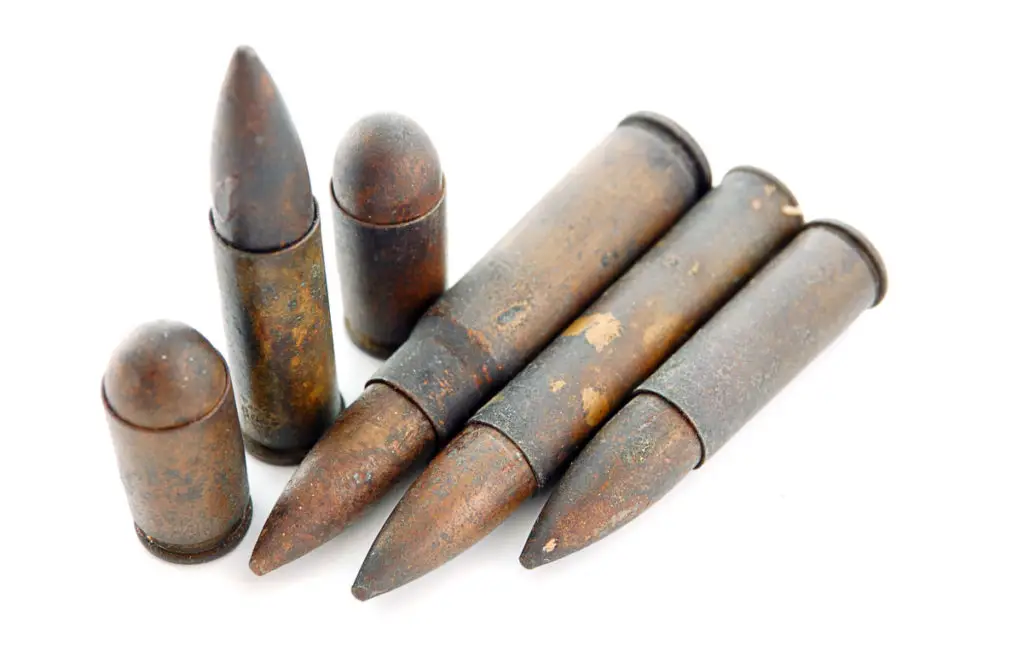
- Misfire: The most likely and least dangerous outcome of pulling the trigger with a bad bullet in the chamber is a misfire. A misfire occurs when the primer doesn’t ignite the power of the bullet. If this happens, your gun will make a clicking noise when you pull the trigger, similar to a dry fire, but nothing will happen.
- Magnification: Another less likely but possible outcome is that explosive crystals will magnify the power of the gun. Explosive crystals are formed through a chemical process that can occur as your bullets are being broken down because of damage. If this happens, the ammo can actually be more potent than before, thanks to the changed chemical composition, and can damage your firearm when you fire it.
- Acidic Reaction: Bad bullets can also cause an acidic reaction when you fire your gun which can lead to damage.
- Jellification: Jellification is what happens in the scenario above where the bullet doesn’t have enough power to exit the gun when it’s fired. The fired but unexited bullet will sit in the barrel and must be removed manually by breaking your gun down. Firing a weapon with a bullet stuck in the chamber is dangerous and unpredictable and can lead to personal or firearm damage. If you shoot your gun and it doesn’t sound right, there’s a good chance that bad ammunition is the problem and jellification has just happened. Safely unload your firearm, take it apart, and remove the bullet from the barrel. Make sure to change out your ammunition for fresh rounds that haven’t gone bad.
How to Tell if Ammo is Still Good
The first thing you should do if you’re using older ammo or ammo that you’re unfamiliar with is to conduct a visual inspection.
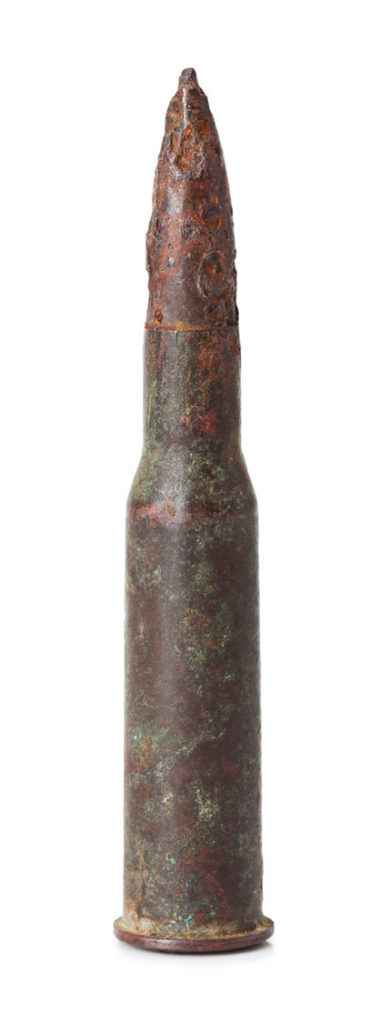
- Rust and Corrosion: If the bullets are obviously worn or discolored, this doesn’t mean that they’re bad, but it does mean that they’re old. Check for rust, oxidation, or corrosion on each of the bullets and set any affected ones aside.
- Physical Inspection: Next, check for other physical defects such as scratches, dents, or cracks in the casing. Dents and scratches don’t necessarily mean that the bullets are defective, but it doesn’t increase the chances. Any bullets that are obviously crooked or misshapen should be set aside, however, as these are the ones that are likely to jam your gun or misfire.
- The Primers: The primer pocket on the bottom of the bullet is a one-time deal, meaning that you can’t fire the same bullet more than once. If any of the bullets have indentations or marks on the bottom of them, it’s possible that they were misfired and placed back into the ammo box. It’s also possible to reuse the same casing and primer and pack it with fresh powder, but it won’t fire.
If you notice any of these things upon your visual inspection, there’s a chance that your bullets are duds. When in doubt, throw them out. Ammunition is expensive, but it’s not as costly as a new gun or medical bills might be if your old ammunition backfires on you.
Things That Can Ruin Ammo
In general, ammunition is very resilient and resistant to most types of damage. However, there are a few things that will certainly cause damage to your bullets, leading to misfires or reduced performance.
- Heat: Extreme heat is a danger to bullets. Bullets contain something known as nitrocellulose gas which aids in their performance. At a temperature of 125 to 150 degrees Farhenheit, this gas starts to seep out. Losing nitrocellulose gas doesn’t mean that your bullet won’t fire, but it will have reduced performance.
- Moisture/Humidity: Moisture and humidity are the two biggest killers of bullets. Improper storage or exposing them to humidity for prolonged periods of time will definitely lead to some bad bullets.
- Rust: Rust and corrosion are also big issues with bullets that will greatly reduce their shelf life and could potentially cause issues when firing.
How Long do Shotgun Shells Last?
The standard shelf life for shotgun shells is 10 years according to manufacturers, but they can last longer or go bad sooner. It all depends on how well you store them.
While shotgun shells look different than other types of bullets, they contain many of the same ingredients that other bullets do. They have gunpowder, primer, and the protective casing that contains it all. Therefore, shotgun shells have the possibility of getting damaged as other types of ammunition.
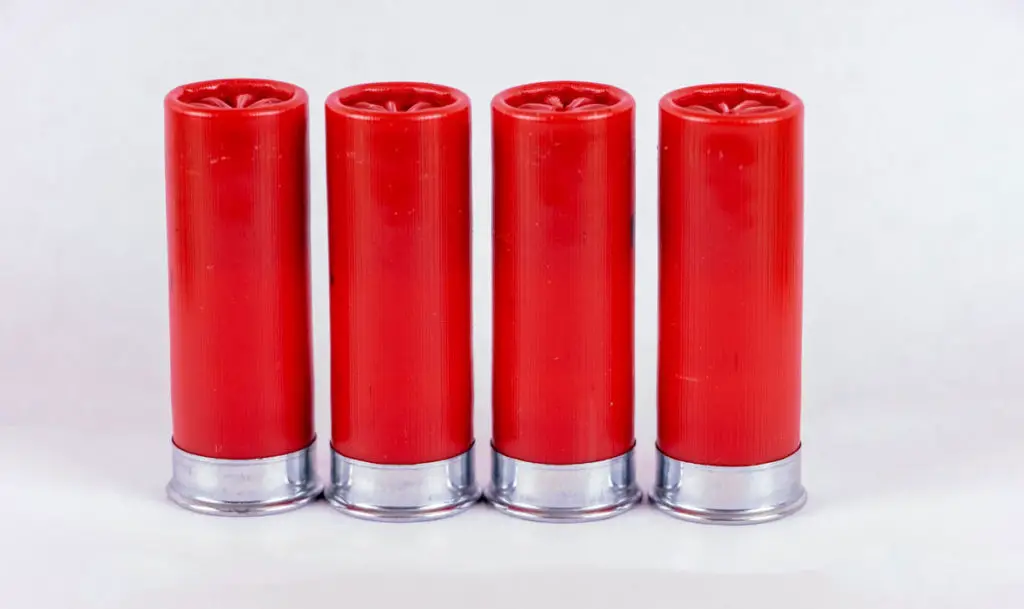
Can I Use Shotgun Shells That are More Than 10 Years Old?
In most cases, the answer to this question is a resounding yes. This is especially true during times when ammunition is in short supply. Take the last two years for example: Ammunition was being sold and used at record rates, which led to a massive shortage. As a result, hunters and gun owners were seeking older ammunition more than ever before.
Traditionally, shotgun shells and other ammo from the 80s and 90s were considered somewhat of a collector’s item. However, thanks to the ammo shortage, people started buying up ammo from these eras, not for collecting purposes, but for use. As long as the shells were in good condition, dry, and taken care of, ammunition was deemed usable regardless of its age.
What about paper shell casings?
In most cases with shotgun shells, there is unfortunately an age limit. However, this is due more to how the shotgun shells were developed and manufactured rather than their actual age. Prior to the 1960s, shotgun shells had a paper shell casing to encompass and protect the contents of the shell. The paper covering of the shell is more likely to have absorbed moisture over the years, which means that it’s less likely to work.
This isn’t to say, however, that shells from the 1960s and earlier won’t work today. As long as they were stored properly and haven’t been exposed to moisture, there’s no reason why shotgun shells and slugs from this era shouldn’t work.
In short, all shotgun shells have a different life expectancy and expiration date. While the recommended shelf life is 10 years on shells and slugs, they can last indefinitely if they’re stored correctly in the right conditions.
Ammo Storage Ideas to Prevent Spoiling
The shelf life that’s listed on most types of ammunition is a conservative estimate in most cases. Bullets can last almost indefinitely as long as they’re stored correctly. Let’s look at some of the best tricks and practices to give your ammunition an indefinite lifespan.
Keep Your Ammo in a Cool, Dry Place
The first step to having properly stored ammo is to keep it in a cool, dry, and dark place. Ideally, this should be in a temperature-controlled environment such as a gun room or gun safe. If you don’t have access to this, however, most types of modern ammo will thrive and survive in as long as it stays dry and relatively cool. More ammo is damaged by humidity and moisture than anything else.
Store Them in an Airtight Container
Keeping your bullets in the right types of boxes and containers is also extremely important. Ammunition storage containers such as ammo cans or boxes are ideal. They form an airtight seal once you latch them shut and don’t allow air in or out. This is a great way to prevent moisture from getting to your bullets.
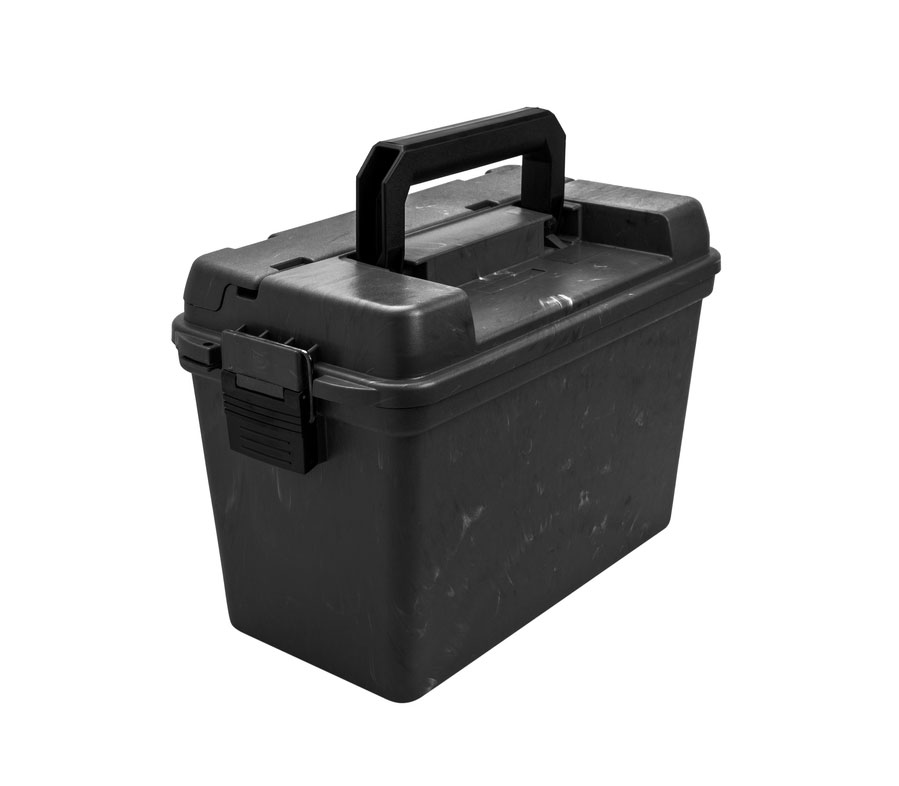
Add Silica Packs
If you have any doubts about the efficacy of your storage container, it’s a good idea to throw some silica packs or a similar product into the container with them. Silica packs absorb moisture and can be purchased from most ammo companies.
Vacuum Pack Them
Another great tip for storing ammunition is to keep them in vacuum-sealed bags. Vacuum sealing is an excellent way to make sure that there’s no air or moisture with your ammo that could cause damage to it.
Control the Temperature and Climate
If you can afford to do so, controlling the temperature and climate in the room where you’re storing ammunition is ideal. Controlling the climate of the entire room will guarantee that your bullets won’t get damaged. Undertaking this task is expensive and timely and not every gun owner has the option to do this.
Avoid Oils and Chemicals
Oils, solvents, and chemicals of all kind can seep into the cartridges of your bullets and cause damage to them. In the same way that humidity and moisture will damage your gunpowder, oils and chemicals will have a similar effect.
Rotate Your Ammo
You might have also noticed that ammo companies push the idea of rotating your ammunition. This isn’t done as an attempt to get you to buy more boxes of bullets. Rather, it’s done so that you’re bullets are less likely to misfire. Keeping track of how old your ammo is and rotating them so that you use the old rounds first will ensure that you don’t use bad bullets in your gun. This is especially important for your concealed carry firearm that you rely on for personal protection.
Stability is Key
You should also make sure that you never store your rounds in a place where they can move and rattle around. Safe storage is a huge part of proper storage, which means you should avoid storing ammo in vehicles or other areas where they aren’t stable.
Conclusion
Despite what most manufacturers advocate and say on their website, ammunition doesn’t have an exact expiration date. The 10 year shelf life that they list is a conservative message that doesn’t stand true as long as ammo is properly stored. By following the principles and tips laid out in this article, your ammunition can last many decades, well beyond the 10 year time frame suggested by ammo distributor.
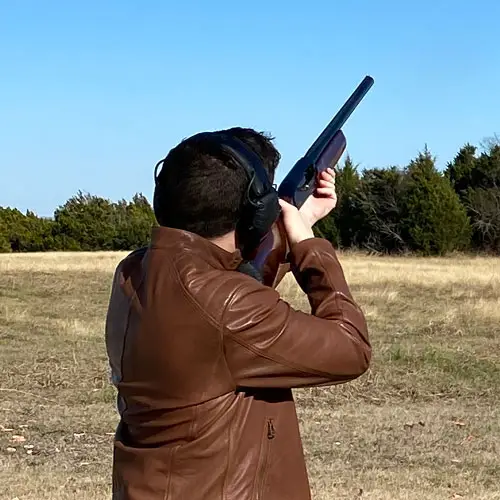
Joseph has been hunting for most of his life. Some of his best memories were growing up sitting in a treestand or a blind and waiting for a monster buck to come along. His main focus has been deer hunting, typically with my trusty 20 gauge shotgun.
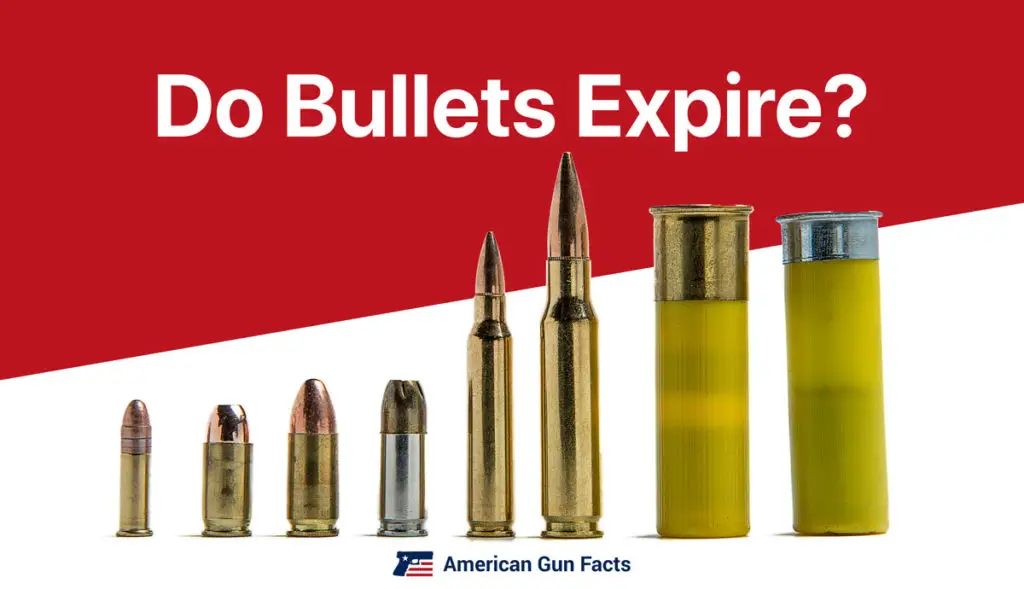
Glad to know that it lasts for more than 10 years. There’s a huge stockpile of ammo from our grandfather that is still sitting in the basement, it would have been a shame if it went to waste